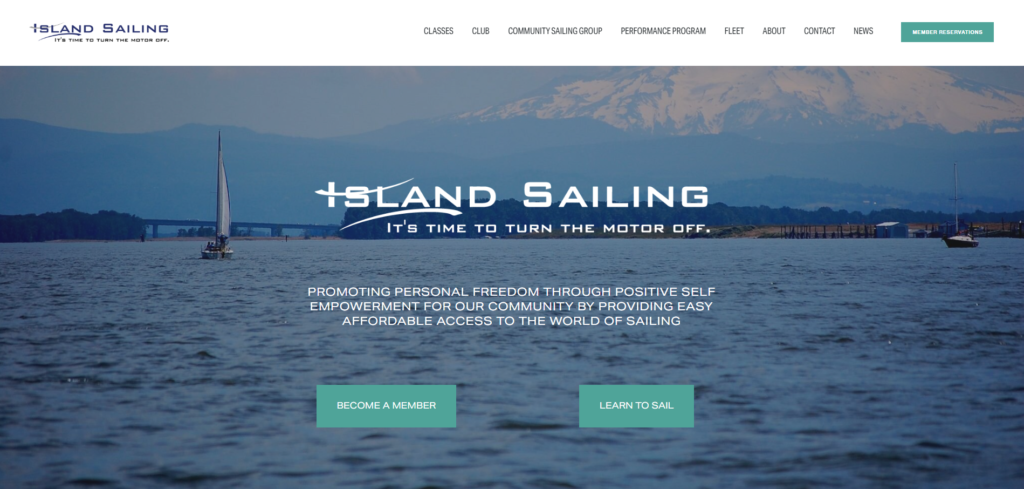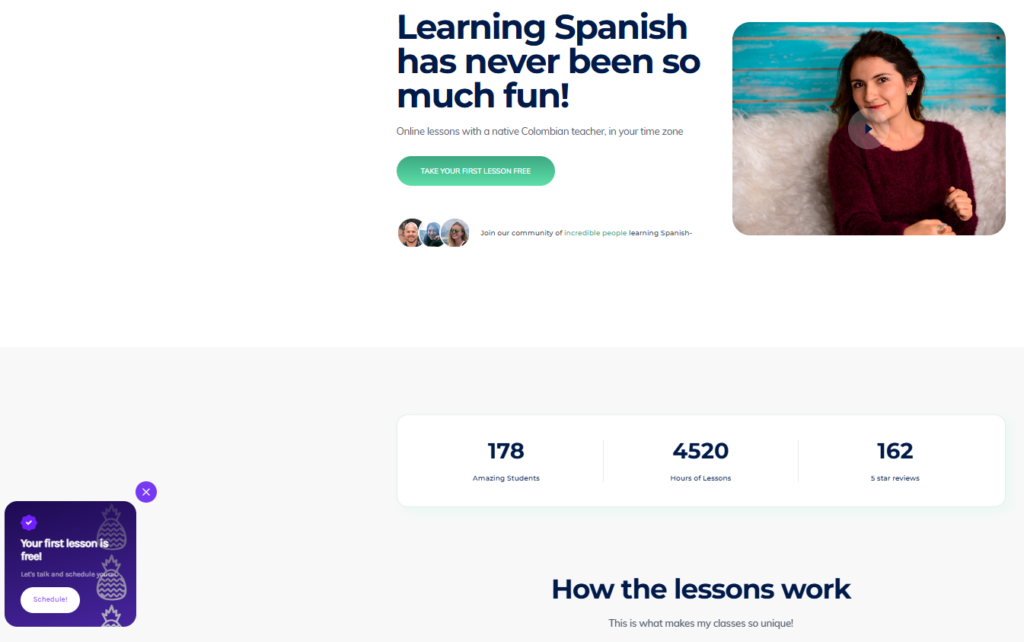Adult learners are a specific group that needs to be expertly marketed to, and a website can enhance credibility for the teacher. Otherwise, the students will simply go somewhere else to take lessons on topics like language, photography, art education, and even sailing instruction. Thoughtfully designed websites can be used for consultants like Tony Vincent to build confidence in his ability to train teachers by way of getting to know his history, credentials, passion projects, and all wrapped up with a call to action on the home page. Check out this impressionable header with a clear logo, navigation, social connections, and invitation to join newsletter all wrapped up in succinct and thoughtful design

Below we will explore the elements that inspire clear communication between a teacher and his/her students in this modern age.
Did you know? Adult learners represent a unique and discerning audience—one that seeks credibility, clarity, and connection from teachers. In our digitally driven age, a teacher’s website isn’t just a supplementary tool; it’s a central hub of trust-building and meaningful engagement. After exploring several dynamic teacher websites targeting adult learners, I’ve pinpointed what works, what misses the mark, and why clear communication is absolutely essential.
Most Effective Sections:
- Instructor Biography and Credentials:
Adult learners highly value credibility. For instance, Tony Vincent’s website beautifully outlines his credentials, background, and passion projects, instantly fostering trust and respect. See Tony Vincent’s effective bio here.
- Mission Statement:
Adult learners love knowing what the “Why” is for the reason the teacher or instructional facility exists. With some sailing schools, the mission sometimes is “we want to sell you a boat,” or “we want you to join our timesharing of boats for an expensive price.” Island Sailing in Portland, OR is a little different because they state on their home page “Promoting personal freedom through positive self-empowerment for our community by providing easy and affordable access to the world of sailing,” and this shows the “why” and is very effective in showing prospective learners that the are more an academy model sailing school, and not simply a brokerage. See the mission statement here.

- Clear and Compelling Call to Action:
Websites like Angela Spanish Teacher succeed because they guide users clearly towards next steps. Whether it’s enrolling in a course or signing up for a newsletter, effective websites never leave visitors guessing. Check out Angela’s compelling CTA. She also has a tally of all the hours, students and 5-star reviews on her website to enhance credibility before she asks prospective learners to take action! There is also a clever pop-up that people can sign up for that says, “Your first lesson is free, let’s talk and schedule yours!” and provides a trial offer and immediate value for learners.

- Updated Resources and Blog:
Lauren Bouty’s language arts-focused site offers regularly updated content, lesson plans, and educational resources, keeping learners engaged and continuously returning. Visit Lauren Bouty’s resource-rich section here.

Least Effective Sections:
- Cluttered Layout and Poor Navigation:
Unfortunately, some educational sites overwhelm visitors with too much information packed into unclear sections. For example, certain areas on Chegg can feel cluttered, diminishing user experience and ease of navigation. See an example here.
- Outdated Information:
When content isn’t current, learners quickly question the credibility of the instructor. Stale resources or outdated announcements leave visitors doubtful of the teacher’s ongoing commitment.
- Lack of Interactive Features:
Adult learners thrive on engagement. Sites like Teacher Mike’s ESL platform excel by incorporating interactive elements, whereas websites that miss this mark risk losing students to more dynamic competitors. Experience interactive engagement with Teacher Mike.
Recommendations for Optimal Communication:
An ideal teacher website for adult learners must blend professional credibility with user-friendly navigation and interactivity. It should prominently feature an instructor bio to establish trust, provide regularly updated content to demonstrate ongoing commitment, and clearly guide visitors toward actionable steps. Interactive elements, like quizzes or feedback forms, significantly enhance engagement, making the learning journey active rather than passive.
Ultimately, a thoughtfully constructed website isn’t just nice to have—it’s essential. It acts as a bridge connecting educators with their students, clearly communicating value, commitment, and professional expertise. In the vibrant landscape of adult education, ensuring your digital presence is welcoming, credible, and interactive will certainly set you apart.

Leave a Reply
You must be logged in to post a comment.